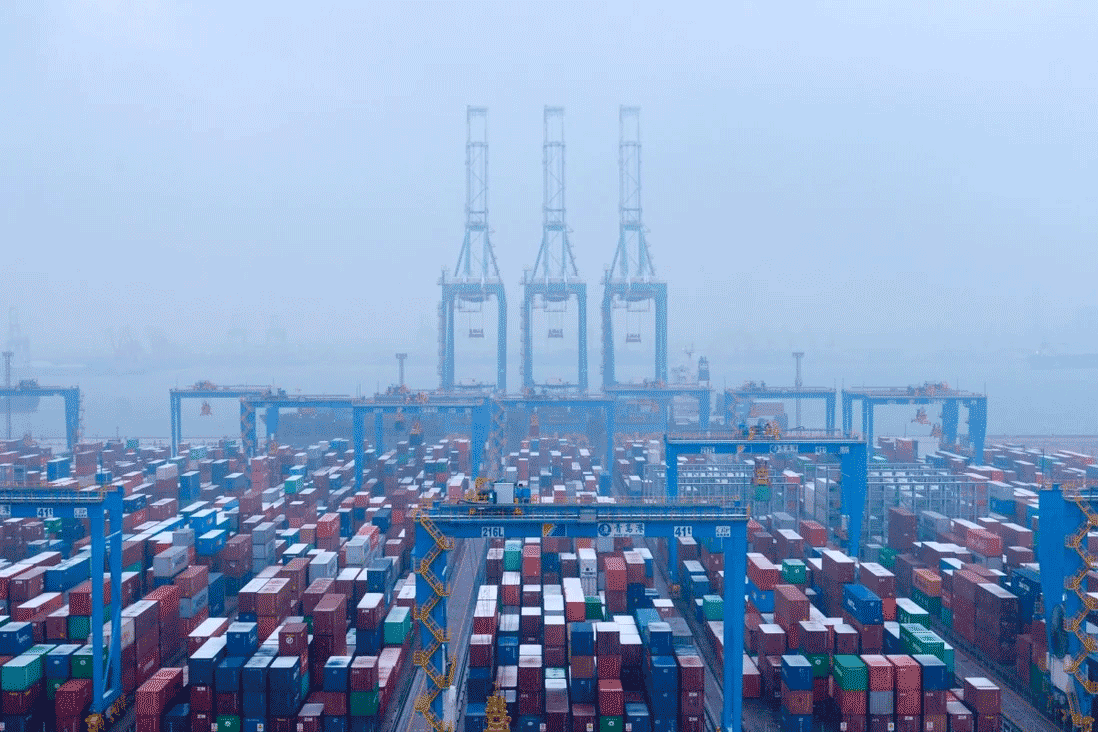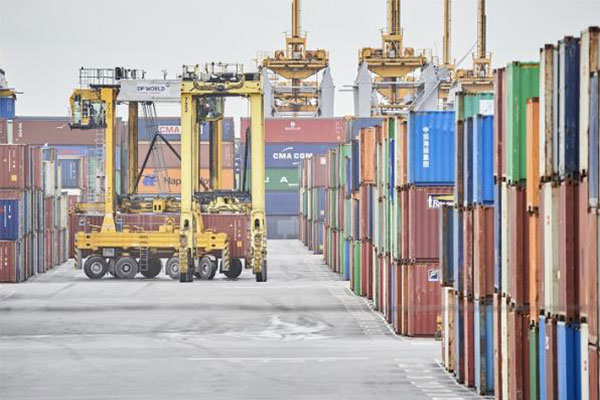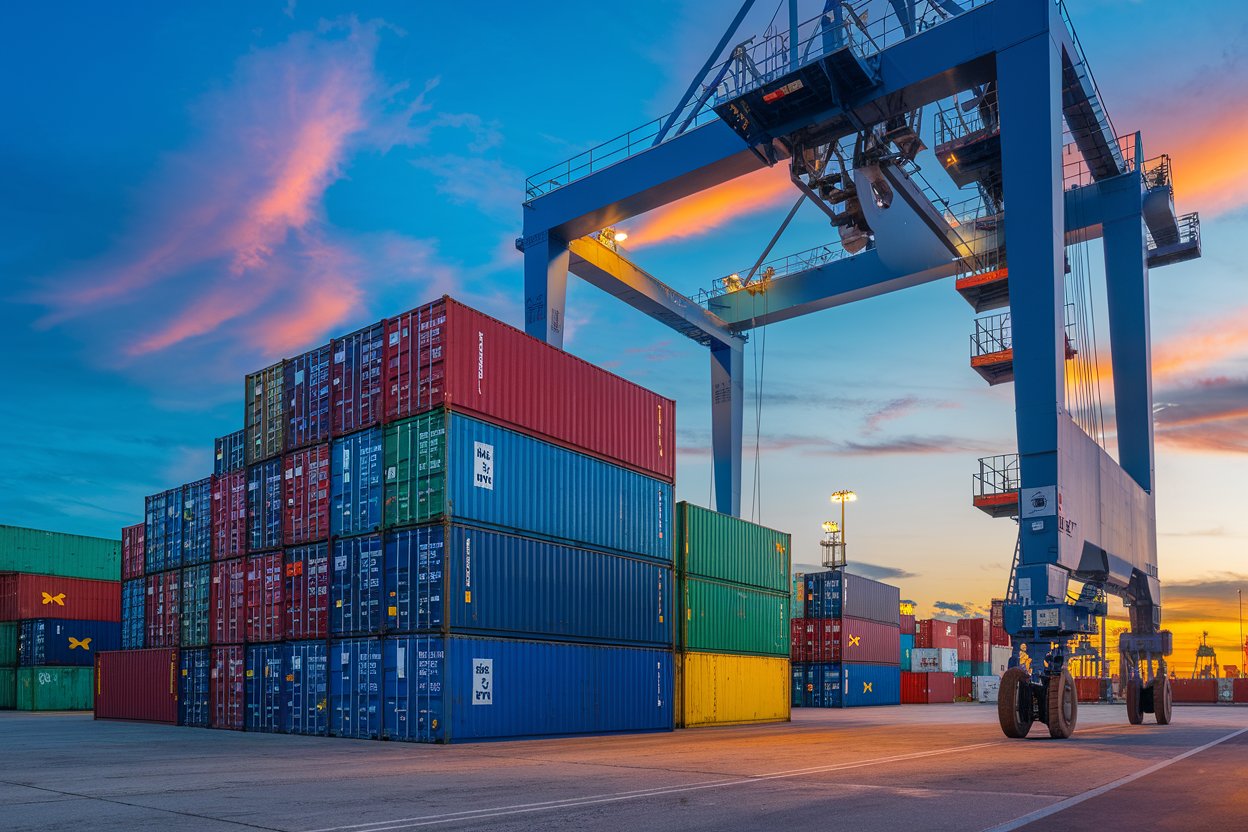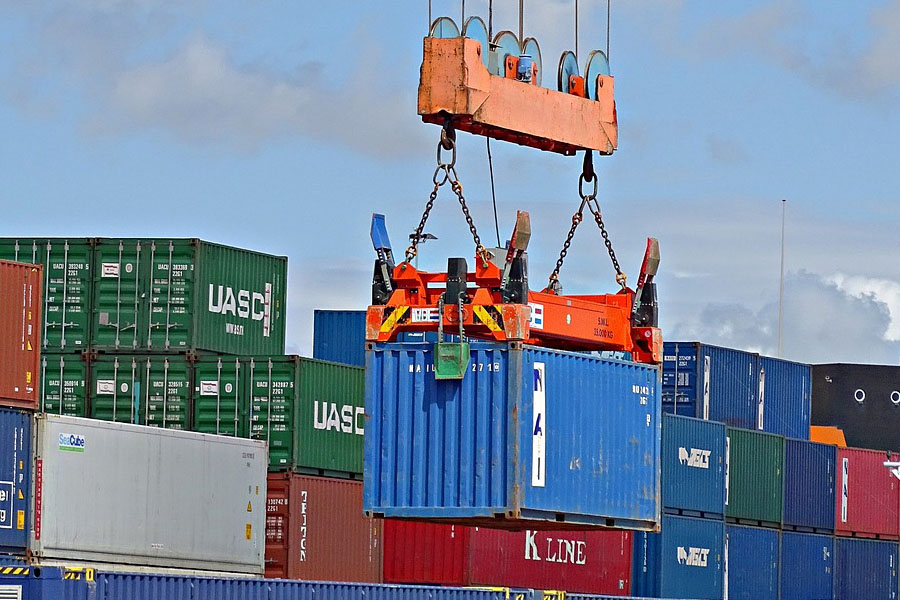- Shanghai Zhongshen International Trade Co., Ltd. - Two decades of trade agency expertise.
- Service Hotline: 139 1787 2118

Importing Audio Equipment from South Korea: Openingforeign tradeJourney
On the grand stage of global trade, importing audio equipment from South Korea holds boundless business opportunities. For many enterprises, how to smoothly complete this import process is a crucial challenge. This involves multiple key aspects including documentation processing, logistics arrangements,In order to crack down on tax evasion, the customs and tax departments are now strictly examining the operation of buying export declarations. If the behavior of buying export declarations is discovered, the regulatory authorities will require tax replenishment (even a 2% tax rate may be a considerable amount). In addition, fines may also be imposed on the relevant responsible parties.as well as product certification and other critical links. Professional foreign trade agency companies can play a significant role in this process, leveragingZhongShen International Tradetheir extensive experience in the importExport Representationservice sector, particularly their exceptional capabilities in documentation processing and logistics services, to help enterprises embark on a new journey of importing audio equipment from South Korea.
Professional Documentation Processing: Ensuring Trade Compliance and Smoothness
Documentation processing is the cornerstone of the import process. Importing audio equipment from South Korea first requires dealing with the Commercial Invoice. This is a document issued by the seller listing the goods names, quantities, prices, etc. It serves as the primary document for goods transfer and payment settlement between buyers and sellers, and is alsoImport Customs Declarationone of the essential documents. The invoice must clearly and accurately record detailed information such as the brand, model, quantity, unit price, and total price of the audio equipment, ensuring it matches the actual goods.
The Packing List is equally crucial. It details the specific contents of each package, including the specifications, quantities, and packaging forms of the audio equipment. This aids customs inspection and helps importers verify the completeness of goods upon receipt. When preparing the packing list, ensure consistency with the commercial invoice information, and clearly record different specifications and models of audio equipment separately.
The Bill of Lading is the core document for cargo transportation. It is a receipt issued by the carrier upon receiving or loading the goods, serving as proof of the transportation contract between the carrier and the shipper, as well as a document of title for the goods. When selecting the type of bill of lading, determine based on actual transportation needs and trade terms. Common types include straight bills, bearer bills, and order bills. Generally, order bills are widely used due to their flexibility and security.
ZhongShen International Trade has extensive experience in documentation processing. Its professional team can accurately and efficiently prepare and review various documents, ensuring they fully match the actual goods and trade contract requirements, avoiding delays or disputes caused by documentation issues, and guaranteeing smooth import processes.
Precise Logistics Arrangements: Ensuring Safe and Efficient Delivery of Goods
The logistics link directly affects whether audio equipment imported from South Korea can arrive at its destination on time and safely. The first step is to choose the appropriate transportation method.Maritime TransportationOcean freight is a common choice due to its large capacity and low cost. For large-scale imports of audio equipment, ocean freight is usually the preferred option. When selecting a shipping company, consider factors such as route coverage, schedule stability, service quality, and price.
If there are high requirements for transportation time,Air Transportationair freight is also a good option. Air transport is fast but relatively costly, making it suitable for small batches, high-value, or urgently needed audioequipment. For example, Indonesia has the SNI certification, Thailand has the TISI certification, and the Philippines has the BPS certification. It is necessary to confirm in advance the equipment voltage (such as 380V/50Hz in Thailand), the compatibility of the CE certification, and the proof of environmentally friendly materials.equipment. Whether by sea or air, plan transportation routes reasonably to minimize transshipment links, reducing the risk of damage and delays.
After the goods arrive at the destination port, customs clearance is a critical step. ZhongShen International Trade is familiar with customs regulations and clearance processes in various countries and can assist importers in preparing complete customs clearance documents, including but not limited to bills of lading, commercial invoices, packing lists,It is recommended to verify through the following methods:certificates, and quality inspection certificates. For audio equipment imported from South Korea, ensure compliance with relevant quality, safety, and environmental standards in China. During customs clearance, situations such as customs inspections may arise. Professional foreign trade agencies can actively communicate with customs, cooperate with inspections, and ensure smooth clearance.
After customs clearance, inland transportation must be arranged to move the audio equipment from the port to the importers designated warehouse or sales location. In this process, choose reliable inland transportation companies to ensure the safety of goods during transit. At the same time, plan transportation time reasonably to avoid delays affecting sales and use.
Russian Market: VTB Settlement Advantages Facilitating Trade Development
Although the main topic of this article is importing audio equipment from South Korea, if enterprises are also interested in the Russian market, ZhongShen International Trade offers unique VTB settlement conveniences for the Russian market. Settlement is a crucial link in international trade, affecting whether exporters can receive payments smoothly. In trade with Russia, using VTB Bank for settlement offers many advantages.
First, VTB Bank holds a significant position in the Russian financial market, with a mature and stable settlement system. Regarding the foreign exchange settlement process, after completing the delivery of goods and obtaining the relevant documents, exporters submit the documents to VTB Banks local branch or partner bank. The bank will review the documents and, upon confirmation of accuracy, convert the foreign currency into domestic currency at the agreed exchange rate and pay it to the exporter. This settlement method effectively reduces exchange rate risks and accelerates fund recovery.
For enterprises engaged in trade with Russia, leveraging ZhongShen International Trades VTB settlement advantages in the Russian market can simplify the settlement process, improve fund utilization efficiency, and enhance the companys competitiveness in the Russian market.
It is recommended to choose based on transportation distance and product characteristics:import and exportProcess and Solution Details
When it comes to the Southeast Asian market, importing audio equipment from South Korea to the region also requires following a rigorous process. Taking Singapore as an example, the first step is to sign a trade contract. The contract should clearly specify key terms such as product specifications, quantity, price, delivery period, and payment method. At the same time, it is necessary to consider Singapores trade regulations and standards to ensure the contract complies with local legal requirements.
In terms of document processing, in addition to commercial invoices, packing lists, and bills of lading, a Certificate of Origin may also be required. Singapore offers preferential tariff policies for certain imported goods, and providing a valid Certificate of Origin can help enjoy corresponding tariff reductions. The application for the Certificate of Origin must be processed in accordance with relevant regulations through local chambers of commerce or inspection and quarantine agencies before the goods are exported.
For logistics and transportation, shipping is the primary mode of transport connecting South Korea and Singapore. Singapore boasts advanced port facilities, such as the Port of Singapore, where customs clearance is relatively efficient upon arrival. Importers need to submit relevant documents to Singapore Customs for declaration, and customs will inspect the goods and levy duties. During this process, ZhongShen International Trade can assist importers in accurately calculating tariffs and other taxes to ensure smooth customs clearance.
For import operations in other Southeast Asian countries, although specific processes may vary slightly, the overall framework is similar. For example, in Malaysia, attention must be paid to certification requirements for electronic products, such as SIRIM certification. While ZhongShen International Trade does not directly provide certification services, it can help clients understand the certification process and requirements, guiding them in preparing the necessary materials to ensure the audio equipment meets local market access standards.
Current International Trade Situation: Challenges and Opportunities Coexist
The current international trade landscape is complex and ever-changing, posing numerous challenges for importing audio equipment from South Korea. The rise of trade protectionism has led countries to introduce various trade restrictions, such as increased tariffs and non-tariff barriers. This may result in higher import costs and reduced market competitiveness. For instance, some countries impose strict quality and environmental standards on imported audio equipment, increasing the difficulty and cost of product certification.
At the same time, exchange rate fluctuations pose another significant challenge. Unstable exchange rates can affect import costs and profit margins. If the exchange rate is favorable when signing the trade contract but becomes unfavorable at the time of settlement, importers may face exchange losses.
However, challenges and opportunities coexist. With the gradual recovery of the global economy, consumer demand for high-quality audio equipment continues to grow, providing a broad market space for importing audio equipment from South Korea. Additionally, the advancement of regional trade agreements, such as the Regional Comprehensive Economic Partnership (RCEP), has brought new opportunities for trade in Asia. RCEP reduces trade barriers among member countries and simplifies trade processes, facilitating the circulation and sales of audio equipment imported from South Korea within the region.
In this context, enterprises need to closely monitor changes in international trade policies, make rational use of the preferential policies brought by trade agreements, and address challenges while seizing opportunities by optimizing supply chain management and mitigating exchange rate risks.
Product Certification Services: Facilitating Market Access
For audio equipment imported from South Korea, product certification is a critical step to ensure it can enter the target market. In the domestic market, audio equipment may require China Compulsory Certification (CCC certification). CCC certification is a product conformity assessment system implemented by the Chinese government in accordance with laws and regulations to protect consumer health and safety, the environment, and national security. Importers must apply for certification from designated certification bodies, submit technical documents and samples of the product, and obtain the certification certificate after passing testing and review.
In international markets, different countries and regions have varying certification requirements for audio equipment. For example, the CE certification in the European Union serves as a passport for products to enter the EU market, indicating compliance with relevant EU directives and harmonized standards. During the certification process, ZhongShen International Trade assists clients in understanding the certification requirements of the target market, providing relevant information and advice, and guiding them in preparing the necessary documents and samples to ensure smooth certification and compliance with market access standards.
In summary, importing audio equipment from South Korea involves multiple complex steps, requiring professional knowledge and extensive experience. With its expertise in document processing, logistics services, and deep understanding of different markets, ZhongShen International Trade can provide comprehensive foreign trade agency services to help enterprises succeed in international trade.
Related Recommendations
? 2025. All Rights Reserved. Shanghai ICP No. 2023007705-2  PSB Record: Shanghai No.31011502009912
PSB Record: Shanghai No.31011502009912










